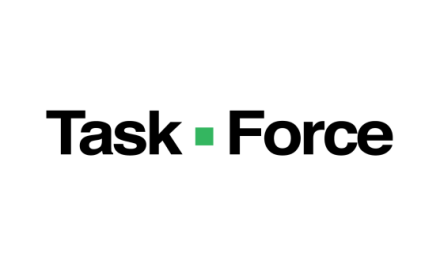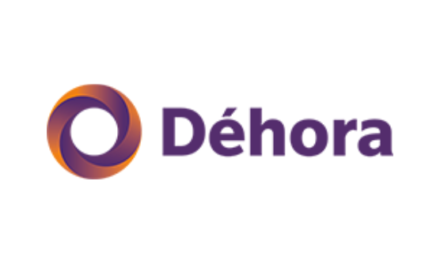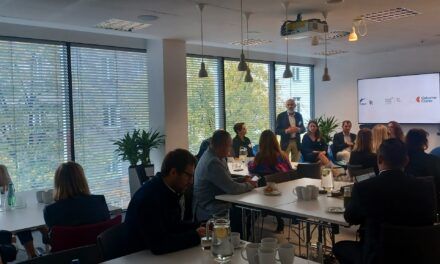
By Piotr Stolarczyk, director, head of the International Banking and Trade Finance Department, Bank Pekao SA

Polish exports have been growing for three decades. Looking back over the last three decades, starting from the transformation in 1989, a picture of the success of Polish exports will emerge: an 11-fold increase in Polish exports and a threefold increase in Poland’s share in world trade. Increased activity of Polish enterprises on foreign markets positively translates into the rate of economic growth of the country. Export has become the driving force behind the growth of the Polish economy. Today, Polish exports account for about 1.5% of total global exports. Since 2010, we have been observing growing openness of the Polish economy – the ratio of Polish exports to GDP has increased by 20 percentage points to the level of 55%. At the same time, the EU average is 47%.
Many studies show that exporting companies are more innovative than companies operating only on the domestic market. Exporters give a great boost to innovation, which translates into strengthening the entire economy. In turn, they also need comprehensive financial support of their projects and protecting themselves against contractual risks. Such a comprehensive approach is offered in Bank Pekao’s centre of international competence and trade finance. Pekao’s experts prepare product solutions tailored to the specifics of the project, cooperating with businesses from the earliest stages of contract planning, so that financing can be effectively carried out. The range of solutions is wide, from the settlement and financing of receivables under commercial contracts, through investment loans for the development of production for export, up to financing of acquisitions on foreign markets.
Trade between Poland and the UK today
It is impossible to say that Brexit has had no impact on economic cooperation between Poland and the UK. The most visible effect? The UK dropped from second to fourth position on the list of Polish top export markets. While its share in all Polish foreign sales in 2019 amounted to 6.0%, by 2022 it had decreased to 4.9%. Another thing is that the value of Polish exports to the UK in 2019-2022 grew nominally by 19%, while the total value of Polish foreign sales increased by 46% over the same time. While from 2019 to 2022 sales of Polish food to the UK increased by 33%, computers and electronics by 24%, and electrical appliances and household appliances by 18%, the total export of these products from Poland increased by 48%, 41% and 63% respectively. Even if we recorded increases in volumes in the main categories exported to the UK, they were weaker than the average in other markets.
Jane Austen wrote: “Of all horrid things, leave-taking is the worst.” However, the term that accurately reflects how the cooperation between companies from Great Britain and Poland has been developing since 2020 is not so much ‘leave-taking’, but ‘change’.
This can be seen in the changes that have been taking place in the structure of exports from Poland over the past four years. The importance of automotive products, which have so far largely driven the value of Polish exports, decreased at the expense of products from other industries, especially computer, telecommunications and electronic equipment (these products account for 15% of exports to the UK and ‘only’ 8% of the entirety of Polish exports), as well as products from the agri-food industry (21% share in exports to Great Britain and 12% in total exports).
Secondly, we see interesting projects with the participation of Polish capital taking place on the British market. One of them was the takeover of the British company PCB Technical Solutions Ltd this year by the Polish company Sescom, already operating in 25 markets, including Czechia, Germany, Spain, Austria and Italy. This is an important step in the company’s strategy, one of the goals of which is for Sescom to become the supplier of choice for technical facility management services for retail chains in the main European markets. PCB Technical Solutions Ltd has been operating for over a decade, offering technical maintenance services for commercial and industrial facilities and implementing installation projects for the retail industry, mainly for clothing chains, pharmacies, electronics distributors as well as for food producers and public institutions.
Bank Pekao granted a loan to finance this transaction. This is the first acquisition loan on the Polish market in which bank financing is combined with the use of loan insurance intended to finance foreign acquisition. This solution opens up new opportunities to support international expansion.
Prospects of cooperation between the two markets
The UK, even despite the visible negative effects of Brexit, remains one of the key export markets for Poland and it can be assumed that it will remain so in the coming years. Naturally, Polish entrepreneurs will have to face various challenges, including the increase in formalities and the growing competition from non-EU countries with lower production costs than Poland. Statistical data show that so far these factors, although they had an impact on slowing down the growth rate, did not lead to a collapse of Polish exports to the UK.
One should remember about the numerous capital links that Brexit did not break. According to data from the Central Statistical Office, in 2021 there were 1,460 entities with British capital operating in Poland (eighth place in the ranking, 3.5% of total foreign capital invested in Polish companies), primarily in the processing and trading industries. Also, a number of leading Polish business entities invested in the UK, which at the end of 2021 ranked seventh among largest recipients of Polish foreign investments abroad, with a share of 5.4%.
At the same time, Poland remains an attractive region for capital investment, especially considering the number of structural challenges awaiting our country, among which I will mention only a few: energy transformation, electromobility, development of modern industry or high technologies. On the other hand, the UK may be an attractive investment market for Polish companies not only due to its high demand for a number of consumer and industrial goods, but also for innovative, technological start-ups, for which usually a remote operating model and on-line presence can significantly mitigate formal burdens related to Brexit .
Whether a foreign investor is entering the Polish market or Polish business is developing operations abroad, Pekao’s international competence centre can provide access to information and appropriately selected financial solutions to support their business activity.
























